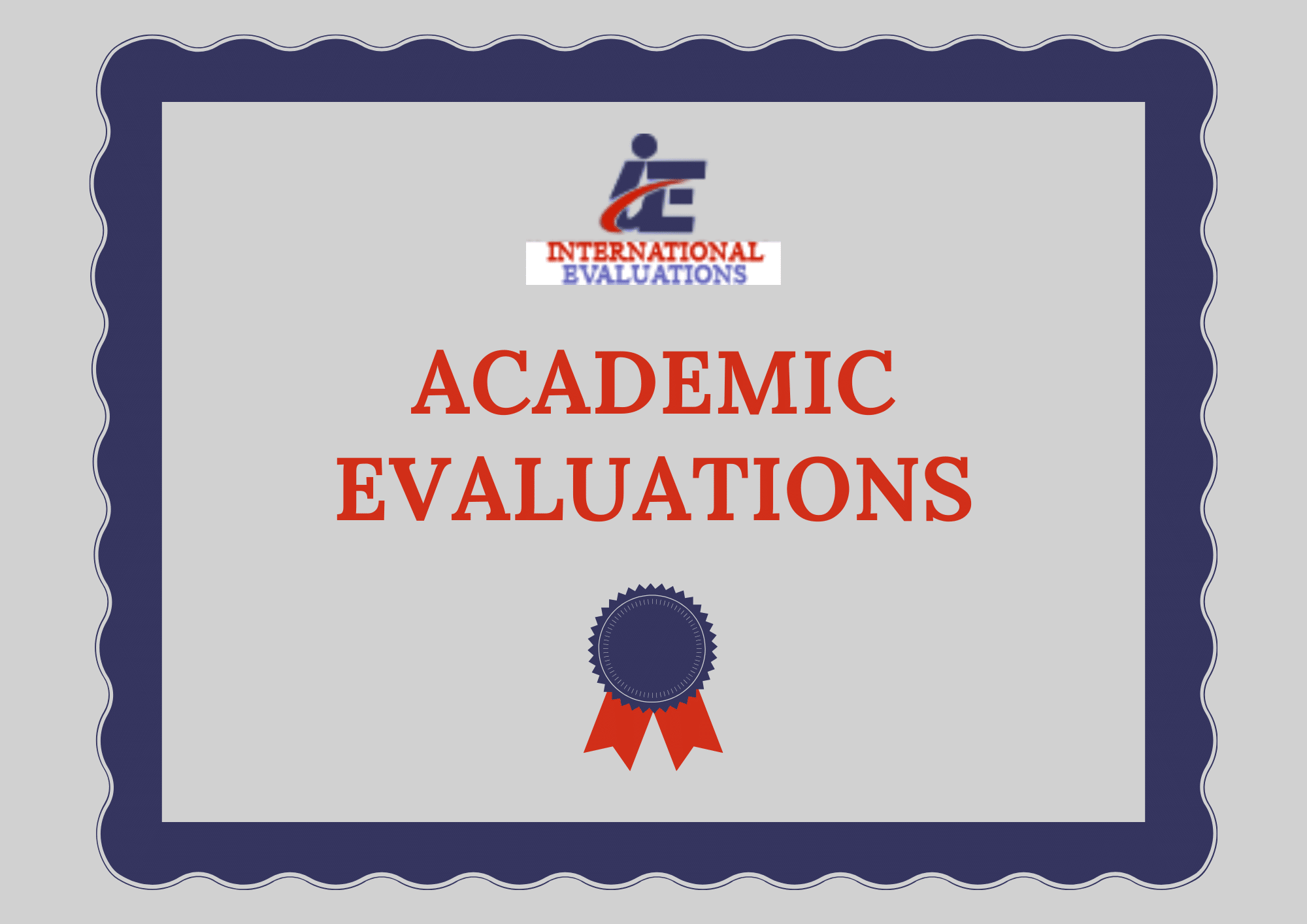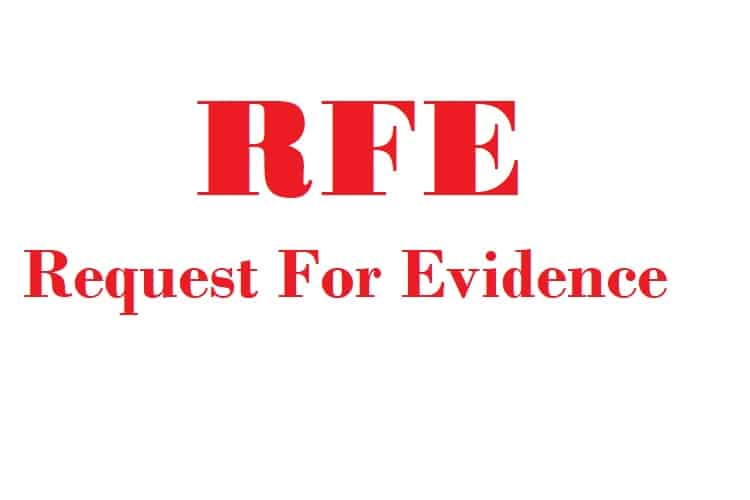expert opinion letter for h1b rfe
Introduction
In our increasingly globalized world, the importance of educational credentials can differ significantly from one country to another. As companies and educational institutions aim to accept diversity, understanding global qualifications has ended up being a crucial need. This is where international credential assessment services step in. These services help in equating foreign qualifications into formats that are easy to understand and acceptable within different contexts, hence enabling people to harness their complete possible no matter where they come from.
Credential evaluation is not simply an administrative process; it's an important tool that cultivates inclusivity and variety. By confirming scholastic records, work experiences, and expert accomplishments through different approaches-- such as course-by-course credential evaluation and work experience evaluation-- these services make sure that certified individuals receive the recognition they should have.
In this substantial article, we will dig deeply into the various aspects of international credential assessment services, explore its function in accepting diversity, and offer insight into how these evaluations are performed. So, let's embark on this journey to comprehend how we can build a more inclusive society through reliable credential evaluation.
Understanding Academic Credential Evaluation
What Is Academic Credential Evaluation?
Academic credential examination is the procedure of assessing and analyzing academic qualifications gotten from foreign organizations. This evaluation assists employers, universities, licensing boards, and other entities understand what a prospect's credentials indicate in their particular context.
Why Is It Necessary?
The necessity for academic credential evaluations originates from the globalization of education and work. With people moving for better opportunities or seeking education abroad, it ends up being essential to have a standardized approach for assessing their qualifications.
The Function of International Credential Assessment Services
International credential evaluation services focus on offering evaluations that are recognized globally. They think about numerous aspects such as:
- Institutional Recognition: Critics examine if the issuing institution is accredited. Program Content: Understanding course material to determine equivalency. Duration of Study: How long was the program? Was it part-time or full-time?
These elements contribute substantially to providing accurate evaluations.
Types of Credential Evaluations Offered
Course-by-Course Credential Evaluation
One of the most in-depth forms of assessment is a course-by-course credential evaluation, which breaks down each course taken throughout a person's studies. This kind of examination assists in:
- Determining equivalent courses in the U.S. Assigning credit hours for each course. Providing in-depth info about grades received.
Work Experience Evaluation
Evaluating work experience is vital for experts whose credentials may not be strictly academic but are nevertheless valid. This kind of examination can include:
- Analyzing task descriptions. Assessing skills and proficiencies gotten through employment. Establishing equivalence with local standards.
By doing so, individuals can verify their professional experiences as part of their credentials.
Expert Opinion Letter
An expert viewpoint letter serves as an additional layer of validation where professionals examine a candidate's certifications based on their experience and knowledge about market requirements. This letter can be particularly beneficial when:
- The specific lacks formal education but has substantial skills. There is obscurity relating to global credentials.
This adds reliability to applications throughout numerous sectors.
Business Plan Evaluation
For entrepreneurs aiming to begin businesses abroad or protect funding, a business plan evaluation evaluates whether their proposed service aligns with local regulations and market needs. This includes:

- Financial projections. Market analysis. Risk assessments.
Evaluating company plans allows investors and stakeholders to make educated decisions while https://collinqriq912.yousher.com/academic-credential-evaluation-records-level-testimonial considering diverse ideas from various cultures.
The Value of Embracing Variety Through Credential Evaluation
Fostering Inclusivity in Education
Embracing variety through worldwide credential evaluation services promotes inclusivity in educational institutions by ensuring that deserving prospects have access to higher education opportunities no matter where they earned their degrees.
Case Study: University Admissions
Consider a university that accepts global trainees however does not have robust processes for assessing foreign qualifications. By partnering with trustworthy worldwide credential critics, they can:
Increase the variety of their trainee population. Ensure reasonable admissions processes. Encourage cross-cultural interactions amongst students.This straight improves the academic environment and prepares all trainees for a globalized workforce.
Enhancing Labor force Diversity
Incorporating diverse skills into offices offers numerous advantages such as ingenious solutions and varied point of views. With proper evaluations:
Employers can recognize proficient prospects who may otherwise be ignored due to unknown academic backgrounds. Companies can much better align groups with cultural proficiency-- important for serving global customers effectively.Example: Multinational Corporations
Multinational corporations frequently count on varied groups to browse complex markets successfully. By making use of worldwide credential examinations:
They bring in top skill globally. Foster development through different experiences. Strengthen brand name track record by showcasing inclusivity.Challenges Faced by International Credential Evaluators
Variability in Educational Systems
One major challenge dealt with by critics is the variability in educational systems worldwide. Differences in grading systems, curricula structure, and degree nomenclature can make complex evaluations significantly.
Addressing Challenges Through Comprehensive Research
To tackle these difficulties successfully:
Evaluators should remain updated on educational patterns worldwide. Collaborate with foreign institutions for much better insights into their programs.By being proactive, critics boost accuracy while promoting trust expert opinion letter within neighborhoods served by these evaluations.
Misconceptions About International Credentials
Another hurdle involves mistaken beliefs surrounding foreign degrees-- for instance, assumptions that non-U.S.-based degrees do not meet local requirements without extensive investigation or insight into equivalences.
Overcoming Misconceptions
Educational organizations should actively promote awareness concerning accepted foreign qualifications through workshops or informative sessions targeting both employee and potential students alike-- therefore eliminating misconceptions surrounding worldwide credentials!
The Process Involved in Academic Credential Evaluation
Step 1: Submission of Documents
The primary step involves individuals sending relevant paperwork such as diplomas/transcripts in addition to any required supplemental info (e.g., curricula) for extensive assessment by evaluators.
Required Files Include:
- Official transcripts Degree certificates Course descriptions (if readily available)
Step 2: Evaluation & & Analysis
Upon invoice, evaluators perform careful reviews focusing on elements like institutional accreditation status followed by an analysis versus basic requirements established locally (i.e., U.S.-based criteria).
Key Factors to consider During Evaluation:
Program length Grading scale conversion Equivalence decision based on curriculum contentThis phase guarantees thorough understanding before rendering last judgments about equivalency!
Step 3: Issuing Reports
After performing assessments effectively comes report issuance-- a formal document describing findings consisting of recommendations regarding equivalencies attained along with any supporting letters (if relevant).
Types Of Reports Readily available:
General info reports 2. Course-by-course reports 3. Work experience evaluationsThese reports empower individuals throughout application processes throughout multiple domains-- eventually promoting engagement based upon validated achievements!
How Organizations Benefit From Credential Evaluations
Improving Employing Processes
Organizations stand greatly benefited when integrating trustworthy global credential evaluations into hiring practices! With improved insights stemmed from validated backgrounds ...
1 ... Employing supervisors gain self-confidence knowing applicants have appropriate knowledge/skills aligning with job functions! 2 ... Business minimize skill acquisition dangers associated formerly unproven claims!
This leads towards developing strong teams built upon meritocracy rather than biases formed expert opinion letter for h1b rfe out-of-familiarity!
Enabling Expert Advancement Opportunities
By recognizing legitimate experiences/qualifications acquired globally ...
1 ... Employers can set targeted training programs catering towards skill spaces recognized throughout examinations! 2 ... People engage with confidence developing needed competencies guaranteeing career advancement!
This shared financial investment results positively impacting overall work environment morale together with heightened productivity levels sustained with time!
FAQs About International Credential Assessment Services
What Are International Credential Examination Services?
International credential evaluation services evaluate academic records gotten outside one's home country-- translating them into formats comprehensible locally while ensuring rigorous requirements supported throughout!
Why Do I Need My Qualifications Evaluated?
Credential examinations provide clarity regarding your certifications aiding universities/employers recognizing your worth precisely therefore assisting in smoother shifts within competitive environments!
How Long Does the Examination Process Take?
Typically varies anywhere between 7-- 14 company days relying on intricacy involved; timely submissions together with precise documents often speed up processing timelines!
What Types Of Qualifications Are Evaluated?
Evaluators consider all kinds consisting of diplomas/certificates showing secondary/post-secondary education levels paired alongside work-related experiences yielding extensive evaluations customized accordingly!
Can I Appeal An Assessment Decision?
Yes! If unsatisfied with results gotten-- you may request re-evaluation offering extra materials/documentation even more supporting your case enhancing opportunities positively reconsidered thoroughly aligned possible outcomes sought after!
Conclusion
In conclusion, welcoming diversity through worldwide credential examination services plays an instrumental role in developing inclusive societies where everybody has equal opportunities regardless of where they originate from or how they have actually achieved their objectives academically/professionally!
As we browse this complex landscape filled challenges ahead-- it becomes evident cooperation in between organizations using these important services alongside instructional institutions/employers holds key unlocking paths leading towards success!

Ultimately aiming towards acceptance/diversity enhances our collective capabilities equipping us facing future ventures-- guaranteeing no certified individual stays ignored just because strangeness exists surrounding their backgrounds!
Enriching our world needs dedication forging connections beyond borders allowing skill flourish regardless origin stories unfold; together let us continue champion efforts ensuring every voice heard valued renowned transcending differences eventually coming joined purpose driven https://deangrju927.tearosediner.net/course-by-course-evaluations-understanding-your-transcripts advancing progress together!